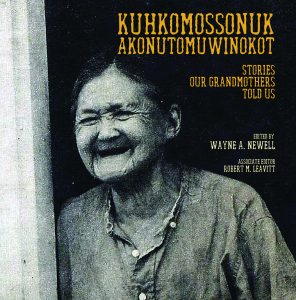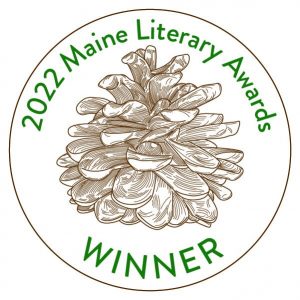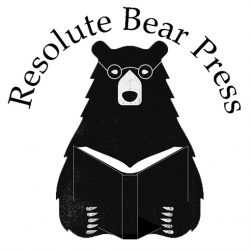

Winner of the 2022 Maine Literary Award for anthology and the John N. Cole award for nonfiction from the Maine Writers and Publishers Alliance.
(Kuhkomossonuk Akonutomuwinokot is pronounced, GOOK-m’ss-noog ah-g’-NOO-d’-moo-WEE-n’-g’d, with the apostrophe standing for a schwa vowel sound, like the o in command.)
The traditional stories collected in this volume link the memories of Passamaquoddy elders to the world of today’s younger generations. The stories help us understand how Passamaquoddy community and culture have changed over the years. Connections between the generations have been weakened over the past few decades with the potential loss of the Passamaquoddy language, which is still spoken fluently by older members of the community.
Until just a few decades ago, the stories found in this volume were told orally as an integral part of Passamaquoddy home life. Since the late 1800s, thanks to intense interest in documenting the language and in ensuring its survival, many stories have been written down by native speakers and have been recorded by them, on everything from wax cylinders, beginning in 1890, to analogue and digital media.
This book begins with “Maliyan: Mary Ann,” an account of life in the Passamaquoddy communities in the early 1900s, and continues with a collection of stories that have been told since that time. They reflect elements from older Passamaquoddy stories about Koluskap and the earliest days of the world. This last set were written down in Passamaquoddy in the late 1800s by Lewis Mitchell, the great-grandfather of this collection’s editor, Wayne A. Newell, who has carefully edited all the stories here to reflect Passamaquoddy oral tradition in written form.
Editorial Reviews
Between 1971 and 1979, the Wabnaki Bilingual Education Program, operating at the school at Indian Township, Maine, published a series of small books that represent the first documentation of the Passamaquoddy language in a form designed to be accessible to native speakers of this Algonquian tongue. These short works, gathered here and presented in a bilingual format that retains the superb illustrations of the original works, are also invaluable to linguists and students of Passamaquoddy culture. They document an ancient oral tradition that was still vibrantly alive into the 1970s but is now threatened as the use of the Passamaquoddy language has waned to an ever-greater extent among younger generations. These stories, not generally heard today, form a particularly valuable link to the past of the Passamaquoddy people.
Philip LeSourd, author of Tales from Maliseet Country (2007), Associate Professor of Anthropology, Indiana University, Bloomington.
This is a book overflowing with wealth. These stories-these treasures, carefully shaped and tended by elders of previous generations-are beautifully brought together, ready to be handed to a new generation of caretakers. Wayne Newell and Robert Leavitt have done a magnificent job of making sure that this part of the legacy of the elders will never be lost.
Norvin Richards, Professor of Linguistics, MIT
The book Kuhkomossonuk Akonutomuwinokot: Stories Our Grandmothers Told Us is a tremendous compilation of stories which gives credit to the ancestors of the past and is a gift to the future generations of Passamaquoddy families and to all those who enjoy learning about Passamaquoddy storytelling. Wayne Newell and Robert Leavitt have worked diligently for 45 years collecting and editing these stories from the elders of the Passamaquoddy communities.
Donald Soctomah, Passamaquoddy Tribal Historian
About the Author
WAYNE A. NEWELL grew up at Sipayik with Passamaquoddy as his first language. He has been active for more than 50 years in promoting and revitalizing the Passamaquoddy language. He created and directed the first Native bilingual education program at Motahkomikuk in the 1970s, and has also served the community as health director, member of the tribal council, and president for 27 years of the tribe’s Northeast Blueberry Company. He holds an honorary doctorate from the University of Southern Maine. Newell is the first Native person to be appointed to the University of Maine Board of Trustees, and was also appointed by presidents Carter and Obama to serve as a member of the National Advisory Council on Indian Education. He lives at Motahkomikuk with his wife Sandra, four children, and many grandchildren and great-grandchildren.
ROBERT M. LEAVITT has worked with Passamaquoddy language speakers since 1971, first in the Maine communities and later as professor of education at the University of New Brunswick, where he was appointed professor emeritus upon retirement. He developed curriculum and materials for the Passamaquoddy bilingual education program at Motahkomikuk in the 1970s and went on to co-author the Passamaquoddy-Maliseet Dictionary with David A. Francis, of Sipayik. The dictionary continues to grow and develop online, at pmportal.org. Leavitt lives in Dufferin Parish, near St. Stephen, New Brunswick.

